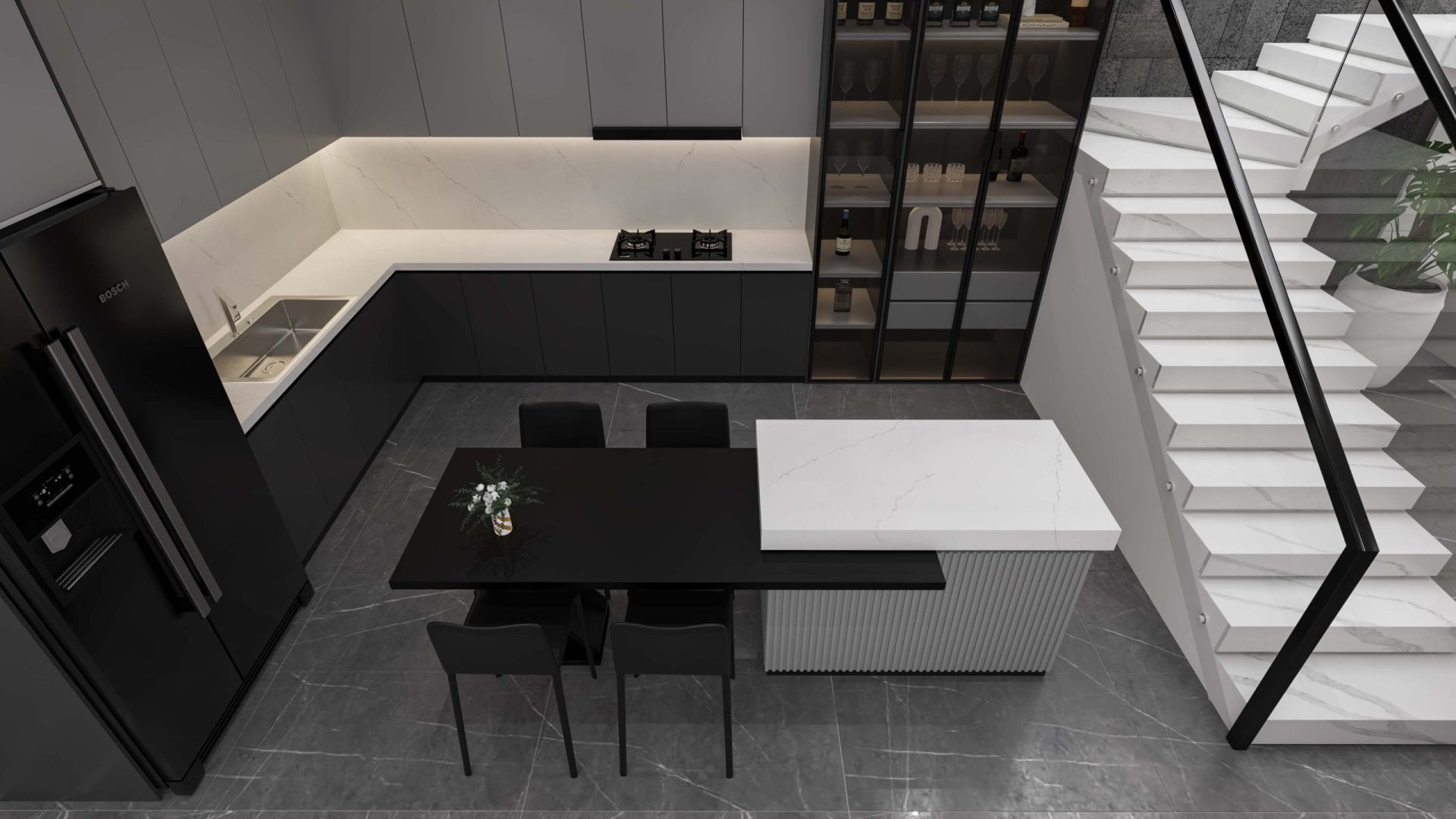Selecting the ideal countertop material is crucial for any project, whether you’re working on a residential kitchen, commercial space, or a renovation. With numerous options available, each offering unique benefits, it’s essential to consider which material aligns best with the needs of your clients. In this blog, we’ll explore quartz countertops and compare them with other materials, helping you make an informed recommendation for your customers.
1. Quartz Countertops: A Smart Choice for Projects
Overview: Quartz countertops are engineered surfaces made from approximately 90-95% natural quartz grits combined with resins and pigments. This process results in a durable, non-porous surface that is increasingly favored in the market.
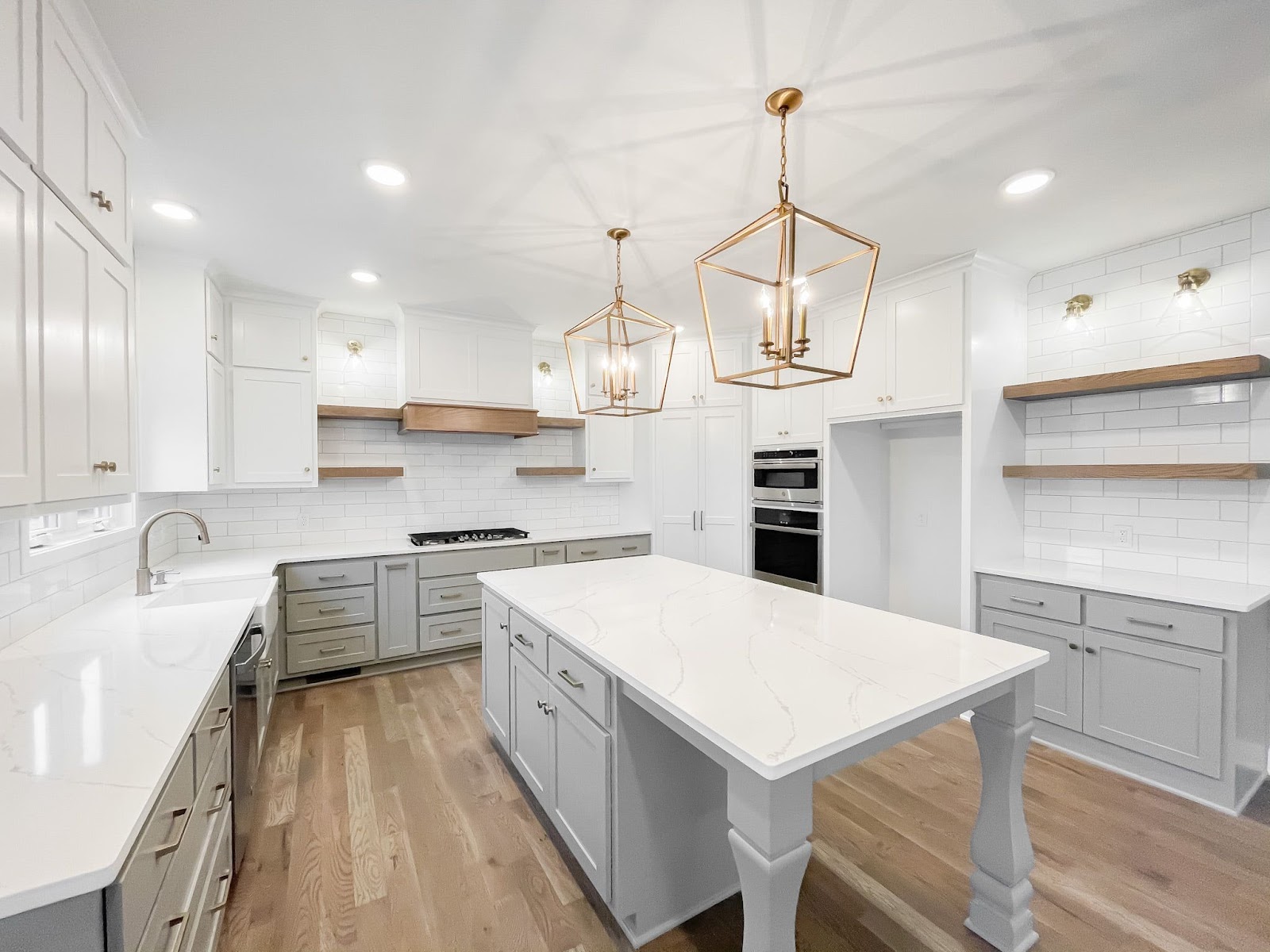
Advantages for Your Clients:
- Durability: Quartz is known for its impressive resistance to scratches, chips, and cracks, making it suitable for high-traffic areas. For contractors, this means fewer callbacks for repairs and a satisfied customer base.
- Low Maintenance: Unlike natural stones, quartz does not require sealing or special cleaning products. A simple soap and water solution suffices for upkeep, allowing homeowners to enjoy their surfaces without constant maintenance. This is a significant selling point when presenting quartz to your clients.
- Aesthetic Versatility: Quartz comes in a vast array of colors and patterns, enabling you to offer options that can complement various design styles. Whether a client desires a modern look or a classic aesthetic, quartz provides versatility that can appeal to diverse tastes.
- Hygienic Surface: The non-porous nature of quartz is a considerable advantage in kitchen and bathroom environments, making it resistant to bacteria and stains. This aspect can be particularly appealing to health-conscious customers.
2. Comparing Quartz to Other Materials
Granite Countertops
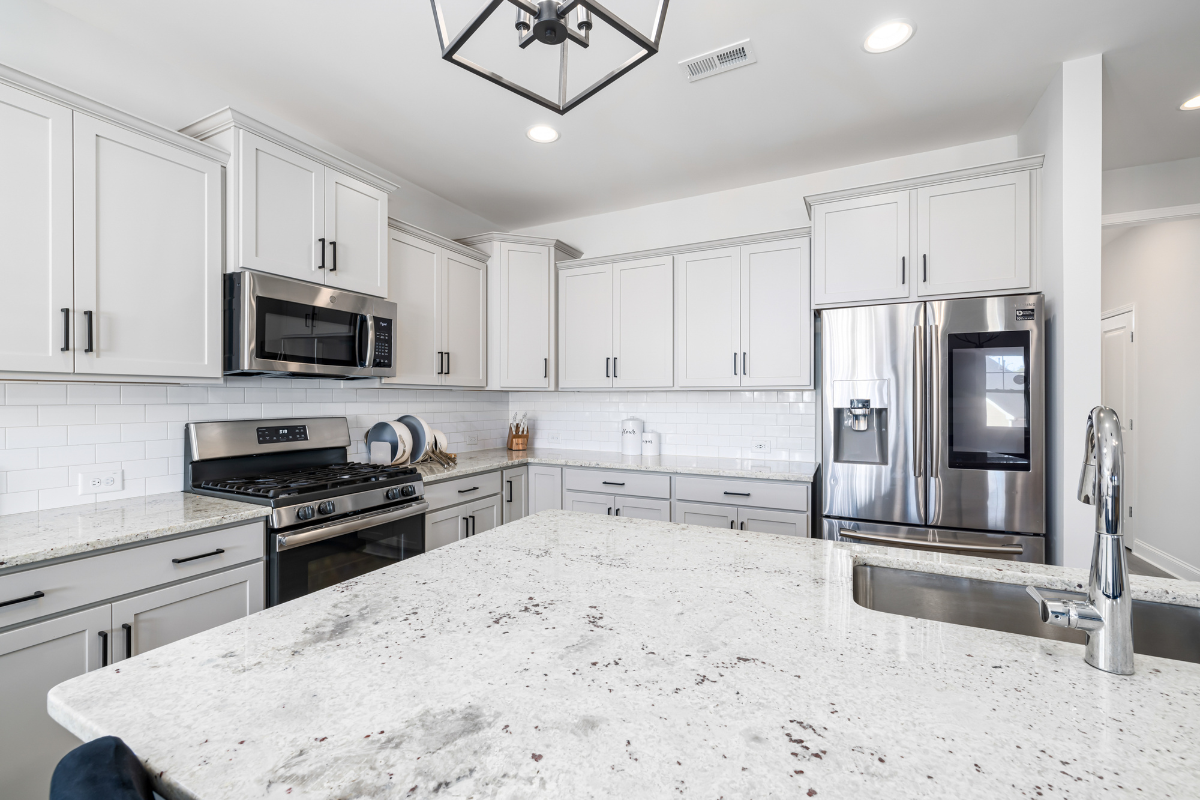
- Pros: Granite offers a natural, unique appearance and excellent heat resistance, appealing to homeowners who prioritize aesthetics.
- Cons: However, it requires regular sealing to prevent stains, which can lead to increased maintenance demands for your clients.
Marble Countertops
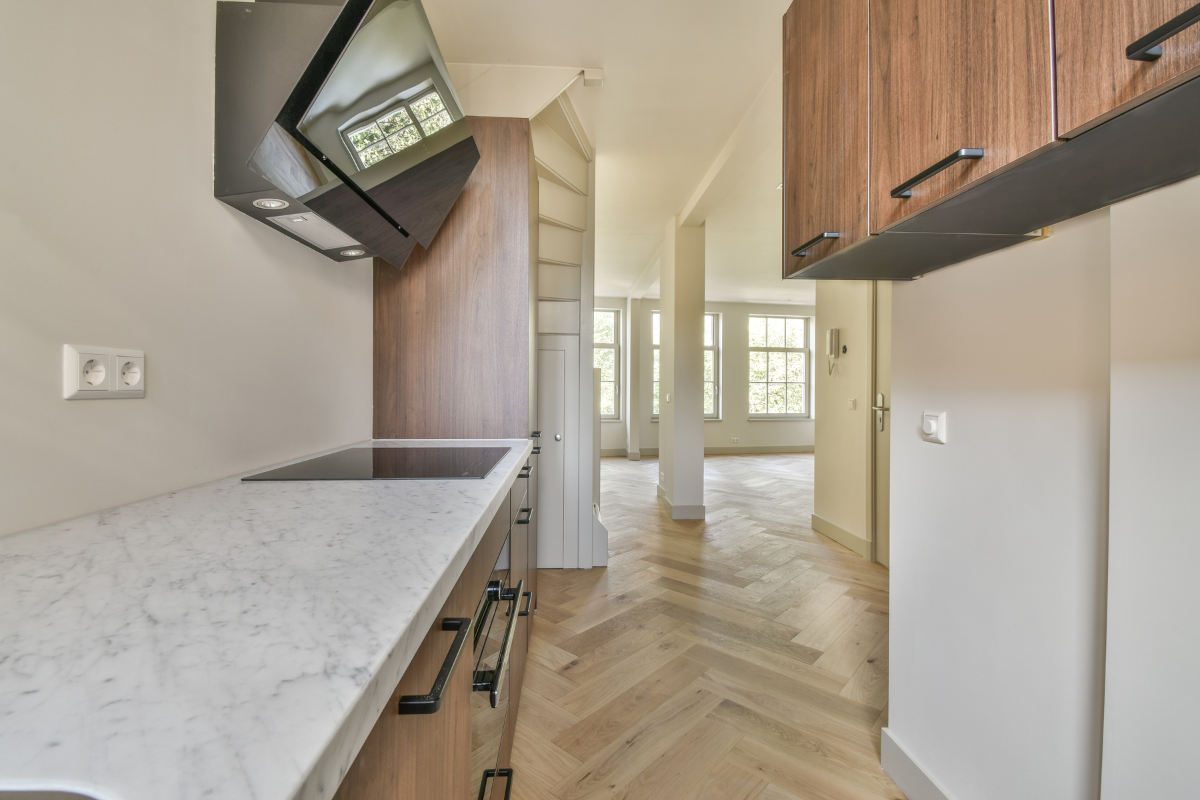
- Pros: Marble is renowned for its luxurious look and classic appeal, often sought after in high-end designs.
- Cons: Yet, marble is softer and more porous than quartz, making it prone to scratches and stains. This means higher maintenance needs, which may deter some clients.
Laminate Countertops
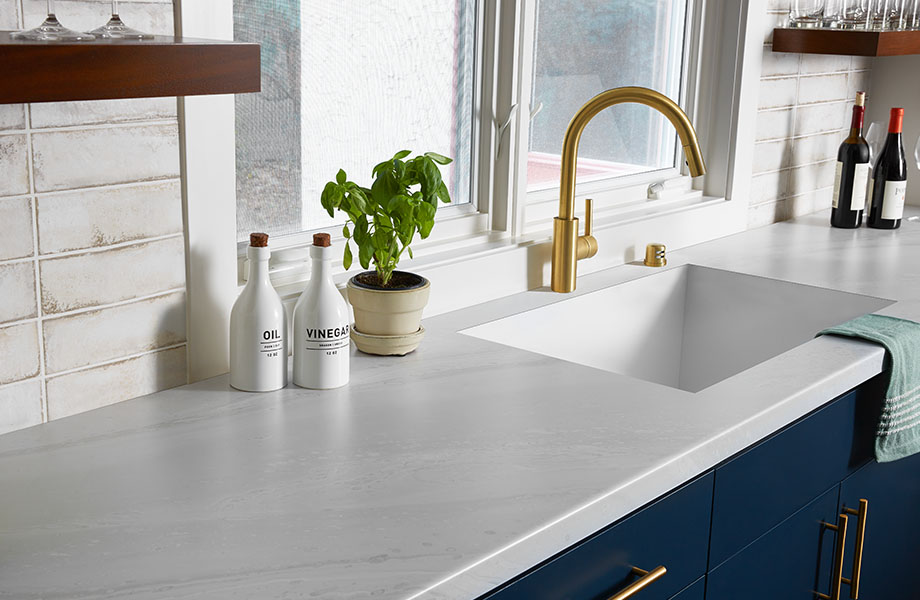
- Pros: Laminate is a cost-effective solution with various designs available, attractive for budget-conscious projects.
- Cons: However, it lacks the durability and heat resistance of quartz, and it can chip or burn more easily, potentially leading to replacements that could affect your bottom line.
Comparison table
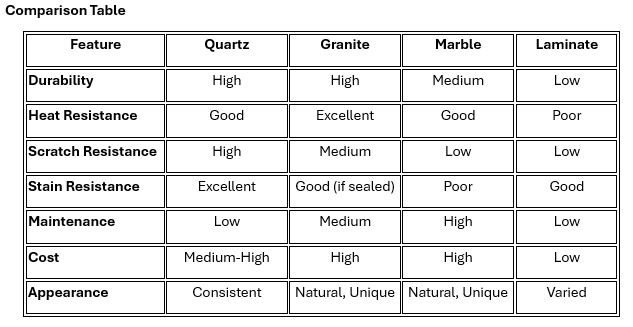
3. Aligning Your Offerings with Client Needs
When advising clients on countertop materials, it’s crucial to consider their specific needs and preferences. Quartz stands out for its durability, low maintenance, and aesthetic appeal, making it a strong recommendation for contractors and distributors looking to provide high-quality options to their customers.
4. Conclusion: A Strategic Choice for Your Business
In a competitive market, offering quartz countertops can set your business apart. Their combination of durability and low maintenance aligns well with the demands of today’s consumers, making them an attractive option for a wide range of projects.
At Lux Quartz Vietnam, we provide an extensive range of high-quality quartz surfaces designed for both residential and commercial applications. Partner with us to enhance your product offerings and meet the diverse needs of your clientele.
Get in Touch!
If you’re interested in elevating your projects with stunning quartz countertops, contact us at Lux Quartz Vietnam. Our team is ready to support you in finding the perfect solutions that meet both your and your customers’ needs!
See more:


















